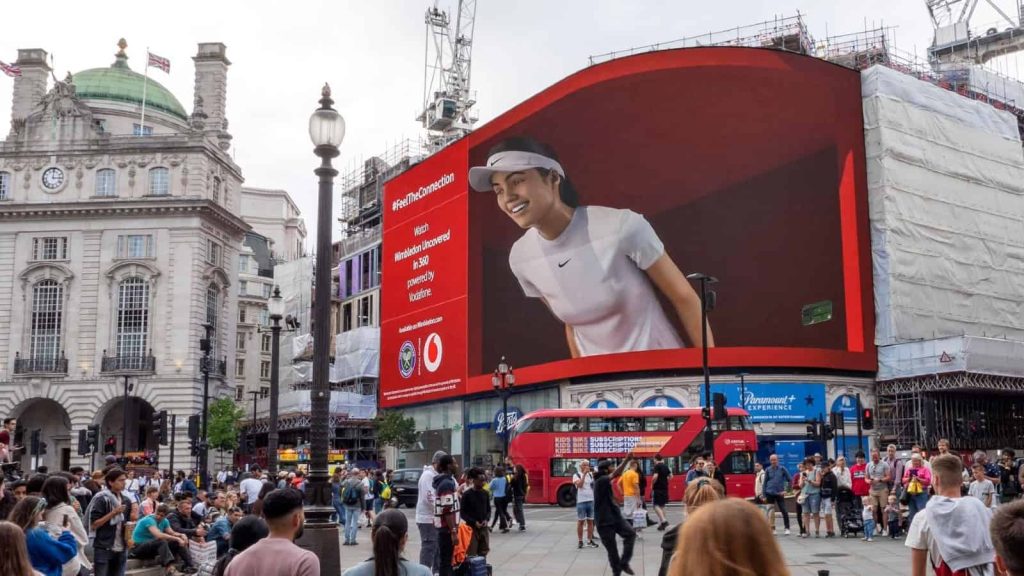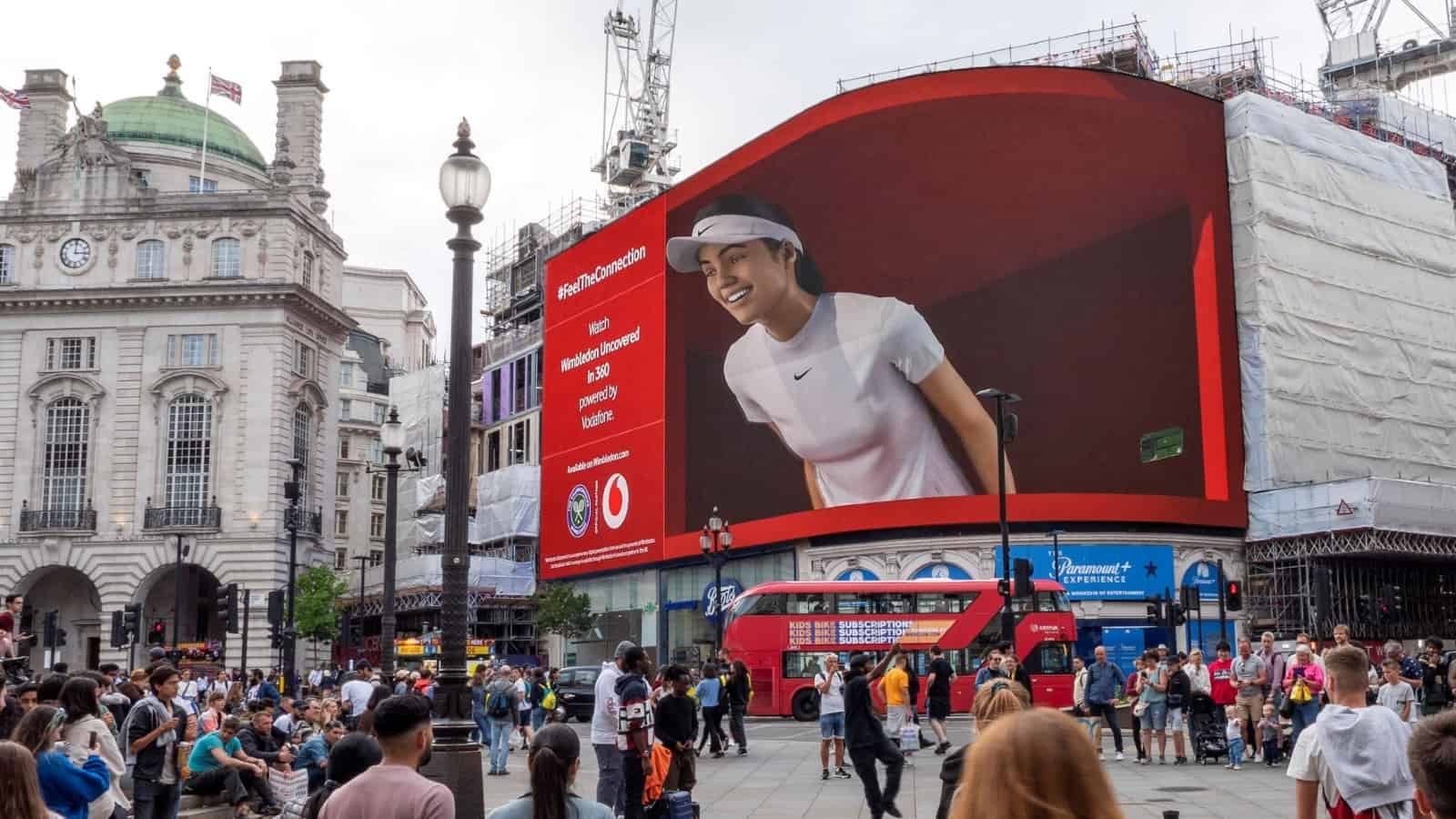The Vodafone share price just hit a 52-week high! But is the group’s debt still a drag?


Although the Vodafone (LSE:VOD) share price has fallen 39% since June 2020, it recorded a 52-week high on 1 July. But over the past 12 months or so, the stock’s been in a bit of a holding pattern. It’s almost as though investors are waiting for something to justify them pushing the share price in one direction or the other.
A new approach
In January 2023, when Margherita Della Valle took over as chief executive, she promised change. Since then, she’s overseen the disposal of a number of underperforming businesses and a slimline version of Vodafone has emerged.
As well as funding a share buyback programme, the disposal proceeds have been used to reduce the group’s debt. Its large borrowings have often been cited as one of the reasons why its share price has been in steady decline. In 2022, The Guardian euphemistically described the group’s debt pile as “remarkable”.
But in the world of mergers and acquisitions, debt’s an important factor when it comes to valuing a business. That’s because, typically, a buyer will have to take on the target company’s borrowings. This led to the creation of enterprise value (EV) — calculated as a company’s market cap plus borrowings less cash.
A bit of number crunching
However, debt in itself isn’t necessarily a problem. As anyone with a mortgage will know, it’s the ability to repay debt that matters. And when interest rates start to rise, it puts considerable pressure on household incomes. And it’s no different for Vodafone. During the year ended 31 March 2025 (FY25), its interest costs were £2.7bn — an increase of 18.8% on FY24.
To help assess debt relative to earnings, I’ve calculated EV/EBITDAaL (earnings before interest, tax, depreciation and amortisation, after leases) for the FTSE 100’s three telecoms companies to see how they compare.
And this tells me that Vodafone’s debt isn’t too far out of line with that of its peers.
| Measure | Vodafone | BT | Airtel Africa |
|---|---|---|---|
| Market cap (£bn) | 19,047 | 19,311 | 6,592 |
| Total debt (£bn) | 45,636 | 23,333 | 4,352 |
| Cash (£bn) | (9,447) | (258) | (401) |
| Enterprise value (£bn) | 55,236 | 42,386 | 10,543 |
| EBITDAaL (£bn) | 9,360 | 8,100 | 1,444 |
| EV/EBITDAaL | 5.9 | 5.2 | 7.3 |
A look back in time
I think it’s also worth noting that the group’s debt has been much higher.
In January 2000, Vodafone became the UK’s largest listed company, with a market cap of approximately £145bn. And its balance sheet at 31 March 2000, disclosed total borrowings of €74.9bn. Its net debt of €61.4bn was over 45% higher than it is today.
But during FY00, the group reported EBITDAaL of €14.9bn. And its EV/EBITDAaL was 19.6. If this was applied today, Vodafone would be worth £183bn — over eight times more!
Final observations
This tells me that even if investors have some concerns over the group’s indebtedness, there are other factors at play.
I suspect that its falling profit in Germany is the biggest concern. And it’s unclear how the merger of its UK operations with Three is going to affect the group’s performance.
But there are some signs that it may have turned the corner. Its service revenue has risen for three successive quarters. Vodafone’s also doing well in Africa. And although the dividend was cut by 50% in 2024, the stock’s still yielding an above-average 4.9%.
Also, during the course of FY25, net debt fell by 17%. And there should be further reductions when the restructuring is complete.
For these reasons, I think value investors could consider taking a stake.
The post The Vodafone share price just hit a 52-week high! But is the group’s debt still a drag? appeared first on The Motley Fool UK.
Should you buy Vodafone shares today?
Before you decide, please take a moment to review this first.
Because my colleague Mark Rogers – The Motley Fool UK’s Director of Investing – has released this special report.
It’s called ‘5 Stocks for Trying to Build Wealth After 50’.
And it’s yours, free.
Of course, the decade ahead looks hazardous. What with inflation recently hitting 40-year highs, a ‘cost of living crisis’ and threat of a new Cold War, knowing where to invest has never been trickier.
And yet, despite the UK stock market recently hitting a new all-time high, Mark and his team think many shares still trade at a substantial discount, offering savvy investors plenty of potential opportunities to strike.
That’s why now could be an ideal time to secure this valuable investment research.
Mark’s ‘Foolish’ analysts have scoured the markets low and high.
This special report reveals 5 of his favourite long-term ‘Buys’.
Please, don’t make any big decisions before seeing them.
More reading
- As the FTSE 100 soars, here are 2 share bargains to consider
- Buying 500 Vodafone shares could generate a passive income of…
- Analysts reckon the Vodafone share price is still undervalued!
- Is Vodafone’s share price set to surge on new VodafoneThree’s £11bn investment plan?
- 2 top UK stocks I still wouldn’t touch with a barge pole
James Beard has positions in Vodafone Group Public. The Motley Fool UK has recommended Airtel Africa Plc and Vodafone Group Public. Views expressed on the companies mentioned in this article are those of the writer and therefore may differ from the official recommendations we make in our subscription services such as Share Advisor, Hidden Winners and Pro. Here at The Motley Fool we believe that considering a diverse range of insights makes us better investors.





